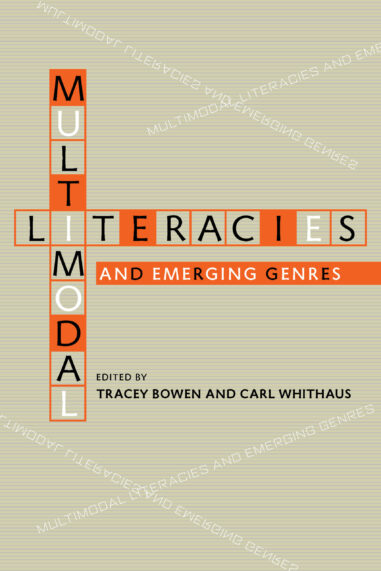A student’s avatar navigates a virtual world and communicates the desires, emotions, and fears of its creator. Yet, how can her writing instructor interpret this form
of meaningmaking?
Today, multiple modes of communication and information technology are challenging pedagogies in composition and across the disciplines. Writing instructors grapple with incorporating new forms into their curriculums and relating them to established literary practices. Administrators confront the application of new technologies to the restructuring of courses and the classroom itself.
Multimodal Literacies and Emerging Genres examines the possibilities, challenges, and realities of mutimodal composition as an effective means of communication. The chapters view the ways that writing instructors and their students are exploring the spaces where communication occurs, while also asking “what else is possible.” The genres of film, audio, photography, graphics, speeches, storyboards, PowerPoint presentations, virtual environments, written works, and others are investigated to discern both their capabilities and limitations. The contributors highlight the responsibility of instructors to guide students in the consideration of their audience and ethical responsibility, while also maintaining the ability to “speak well.” Additionally, they focus on the need for programmatic changes and a shift in institutional philosophy to close a possible “digital divide” and remain relevant in digital and global economies.
Embracing and advancing multimodal communication is essential to both higher education and students. The contributors therefore call for the examination of how writing programs, faculty, and administrators are responding to change, and how the many purposes writing serves can effectively converge within composition curricula.



